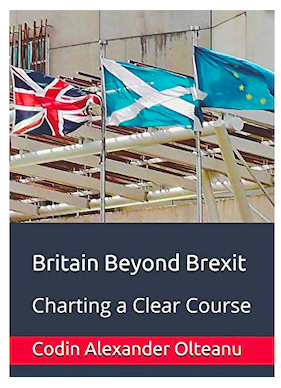Following the 2015 Scottish independence referendum Prime Minister Cameron said that this had been a once in a generation event and that he had no intention of allowing a second referendum to be held at anytime soon. Scottish first Minister Nicola Sturgeon was more cautious. Although she declared that she would not organise a second referendum in the foreseeable future she did make the point that her views and that of a part of the SNP might change if a “material change in circumstances” was to take place which might give her a reason to revise her opinion. Two events are currently taking place that could be characterised as such and give her reasons to do exactly that: first, although recent polls have argued that Euro-scepticism is on the rise in Scotland the fact remains that Scots remain by far more Euro-friendly that their southern neighbours and are likely to vote in a majority to remain in the European Union in the Brexit referendum. Should the UK as a whole, primarily on the strength of English votes, opt to ‘leave’ the EU, a significant crisis would develop that might well lead to the breakup of the 300-year-old union between England and Scotland.
It is very clear that Scotland would not easily accept to be dragged out of the European Union against its wishes and that Nicola Sturgeon is willing to characterise such an event as a “material change in circumstances” which would give her the justification to organize a second independence referendum.
The second event that compounds this crisis is the current deadlock in negotiations between Edinburgh and London regarding the promised devolution of powers from Westminster to Hollyrood together with the financial means required to put them in practice, as detailed in the 2014 Smith Commission Report. Nicola Sturgeon could well characterise this failure of the British government to meet the commitments it openly assumed days before the holding of the 2015 Referendum as another “material change in circumstances” –that is, the second game changing event.
Together, failure to agree on devolution and departure from the European Union against its wishes represent two events highly likely to persuade Scottish citizens not only to hold a second referendum but also to vote to leave the United Kingdom. One only has to look at the events in Spain where recently Catalonia organised an independence referendum against the wishes of the Spanish central government and against the dictates of the Spanish Supreme Court forbidding the holding of such a vote. The independence option won the day and deepened a sever crisis in Spanish society and political institutions that is destabilising the country and putting in question the legitimacy of the Madrid government not only in Barcelona, but also in Bilbao and Seville.
It is difficult to see how David Cameron can stop First Minister Sturgeon from organising and holding a new independence referendum in Scotland and how he could avoid conducting negotiations for independence if a significant majority of Scots voted to leave - assuming that Cameron would still be Prime Minister at the time, which is highly doubtful were he to lose the Brexit referendum on which he has staked his reputation, credibility, and legacy. Politicians across the political spectrum from Tony Blair and Gordon Brown to William Hague and Kenneth Clarke all stated in the clearest of terms that the triumph of the ‘leave’ option in the Brexit referendum would have disastrous implications for the United Kingdom and is highly likely to lead to a second Scottish independence referendum - this time more than likely to be won by the SNP-led independence movement. Having achieved independence, nothing would stop Scotland from re-joining the European Union as a full member state with a direct voice, vote, and influence on the conduct of affairs at the European level.
The outcome for the UK would be its downsizing to a rump-Britain made up of England and Wales - after a possible separation of Northern Ireland as well. What would be left would be a diminished and isolated country at the edge of Europe, at its weakest since probably the times preceding Edward the First in the 13th century – surely not what Cameron meant to do when he went to Runnymede to celebrate Magna Carta’s 800th anniversary.

